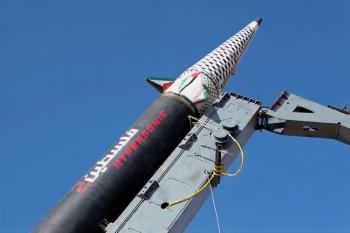Alwaght- After the Independent High Electoral Commission (IHEC) of Iraq announced the results of the Jay 12 parliamentary election, the country’s political factions started the debates to form a new government. The Kurds, meanwhile, as a key party to the political process have begun their discussions for a stronger presence in the new Baghdad cabinet.
The Iraqi Kurds have been holding the post of president since 2005, the year Iraq held its first parliamentary election in the post-Saddam era. They are expected to fill the post this year too, according to an unstated system of power sharing. Since the beginning, the post was held by the Patriotic Union of Kurdistan (PUK), one of the two leading parties ruling the autonomous region. in 2005, Jalal Talabani of the PUK became president of Iraq and the local government’s, known as Kurdistan Regional Government (KRG), presidency was left to Masoud Barzani of Kurdistan Democratic Party (KDP). In 2012, Talabani suffered from an illness that left him practically out of the duty. He was finally replaced by Fuad Masum also of PUK, who took office on July 24, 2014.
But Iraq’s fourth parliamentary election was held in a time while Talabani is dead and Barzani is no longer the president of the KRG, a situation apparently rendering the past agreements senseless. Analysts wonder if the KDP, which secured 25 seats at Iraq's recent elections, will propose one on its officials for Iraq's presidency or will allow the PUK to once again hold the position. Additionally, there is a debate inside the PUK about who to be nominated for the duty. Here is a list of Kurdish figures with most likely chance to fill the post:
Fuad Masum
Fuad Masum, 80, is close to the highly influential Talabani family and remains one of the likely figures for the presidency. Masum, a moderate politician, was a friend to the late PUK leader Jalal Talabani for a long time. But he is facing questions from the Kurdish sides and also from the Arab factions for his “weak stances” on the Kurdish referendum which was held on September 25 last year. Iraqi Supreme Court declared the referendum unconstitutional. He also faced opposite voices inside his own party. All these mean that his chances for refilling the post are lower than before.
Mohammad Saber Ismail
Another figure recently nominated for the post is Mohammed Saber Ismail, who is a member of the PUK’s central leadership committee. Holding a nuclear physics Ph.D. degree, he served as a representative of the Kurdish region in France from 1993 to 2001, and in the US from 2001 to 2004. He also served as Iraq's ambassador to the United Nations from 2013 to 2016. However, he has a long way to go for the post because he lacks charisma even inside his party, but a corruption-free track record can be his winning card.
Abdul Latif Rashid
Abdul Latif Rashid of the PUK formerly served as minister of water resources and currently is the head of the advisory committee of the Iraqi presidential office. He is another figure who can occupy the presidential post. Politically, Rashid is close to Talabani family, including the sons and cousins of Jalal Talabani. But he faces strong opposition from the weighty KDP.
Barham Ahmed Saleh
Barham Ahmed Saleh is a politician who holds serious chances to fill the position, despite his breakaway with PUK and formation of a new party, Coalition for Justice and Development. He was born in 1960 in Sulaymaniyah, the bastion of PUK, and joined the party after its foundation by Talabani in 1976, officially starting his political life. He became a member to the European branch of the PUK in the early 1980s. He took a Ph.D. degree in statistics and computer science from the University of Liverpool 1987 and returned home in 1992 to become a member of the PUK leadership. Saleh represented the northern region in the US in 1991 and was installed by Talabani as the head of Sulaymaniyah local government in 2001 after his return in 2001. He was a deputy prime minister of the Iraqi interim government in 2004. The politician was deputy PM again between 2006 and 2009. His last position was PM of the KRG between 2009 and 2012. He is well- experienced but faces vehement opposition from the PUK. Only if he reunites with the PUK, he can expect an openness to his presidency.
Hoshyar Zebari
Despite the fact that the post is traditionally assumed by a PUK nominee, a member of the KDP can also hold the position: Hoshyar Zebari, the former deputy PM and finance minister of Iraq. Once nominated by the party, Zebari will have to deal with severe opposition from both Shiite and Sunni Arab parties for his bonds to the now-notorious Barzani, his support for the separation plebiscite, and his corruption cases. Therefore, he appears to be holding the least chance to hold the post. His inter-party rivals could be Hyman Hawrami, the advisor to Masoud Barzani and the head of Kurdish coalition in the parliamentary election, Fazil Mirani, the KDP’s politburo secretary, and Fuad Hussein, the chief of staff to the KRG, though their road to the presidency is not easier than Zebari’s.



























